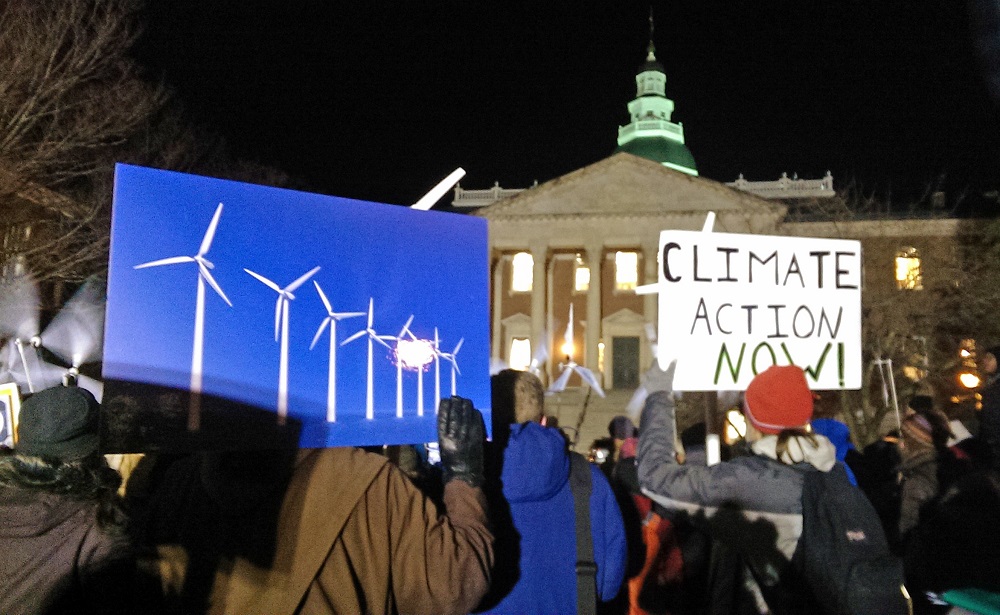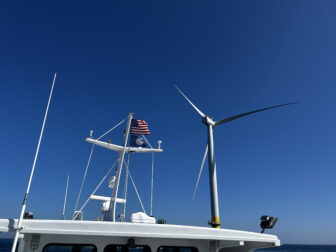Over the past week, an impressive array of business, faith, labor, civil rights, city council, and grassroots voices have spoken out passionately and persuasively on the need to raise Maryland’s clean electricity standard in the 2015 General Assembly.
The bill, the Clean Energy Advancement Act (HB 377/SB 373), was amended in recent House and Senate hearings to set a requirement of 25% clean electricity by 2020, a compromise from the bill’s original target of 40% clean power by 2025. The state’s Climate Action Plan calls for raising our Renewable Portfolio Standard to 25% by 2020 as the single biggest step Maryland can take to reduce emissions of climate-disrupting pollution.
As Delegate Frick, lead House sponsor of the legislation, emphasized ahead of his committee hearing last Friday, this bill is “smart economic policy, smart environmental policy, and smart politics.”
Here’s a round up of the growing momentum behind the Clean Energy Advancement Act, following hearings in the House Economic Matters and Senate Finance committees:
- Business leaders say clean energy puts people to work: Last Friday, business leaders and workers in Maryland’s growing solar and clean technology industries held a press conference and testified before the House committee in support of the bill. Testimony emphasized that Maryland’s existing “Renewable Portfolio Standard” law is the main driver of clean energy job growth in Maryland now, and must be raised to expand on this prosperity. See the press release here.
- Activists rally for clean energy despite bitter cold: On Monday, over 120 grassroots activists braved near-single digit temperatures to rally on Lawyers’ Mall in support of the bill, capping off a lobby night. You can see photos here. Chants of “clean energy now” echoed into the State House as legislators convened for their evening session.
- 230+ Maryland faith leaders—including 7 bishops and senior ecumenical leaders—call on the General Assembly to act: In an unprecedented show of religious leadership on a state environmental issue, seven Maryland bishops and senior ecumenical leaders joined over 230 faith leaders in delivering a letter to lawmakers on Tuesday, making a moral case for shifting the state to cleaner energy. Bishop Wolfgang Herz-Lane also personally testified at the Senate hearing. See the letter here.
- NAACP report calls for expanding Maryland’s Renewable Portfolio Standard: In releasing the Maryland 2015 Just Energy Policies report, the NAACP called for expanding Maryland’s clean electricity standard, ideally to 40% by 2025. As the report underscores, poor communities and communities of color pay the highest price for our current reliance on fossil fuels.
- Baltimore City Council and Mayor endorse the Clean Energy Advancement Act: Noting that, “Maryland has the worst air quality on the east coast, and Baltimore has the highest emissions related mortality rate in the state,” the Baltimore City Council unanimously passed a resolution Monday night calling on the General Assembly to pass, and the Governor to sign, the Clean Energy Advancement Act. Baltimore City Mayor Stephanie Rawlings-Blake also wrote testimony in support of the legislation.
- Capital Gazette op-ed: “Acting on climate empowers us to grow and protect our economy.” This Capital Gazette op-ed from Feb. 24 outlines how Maryland will incentivize significant new growth in good-paying, skilled, and diverse construction, installation, and manufacturing jobs by setting a region-leading clean energy standard.
- Experts testify to modest ratepayer impact: As wind and solar prices continue to plummet, a study conducted by the independent firm Sustainable Energy Advantage predicts that the impact of increasing Maryland’s RPS to 25% by 2020 will likely be $0.52 per month per residential ratepayer (in 2014 dollars) in 2020. The impact of increasing the RPS to 40% would likely be $1.94/month for residential ratepayers in 2025. See the full study here (and find the 25% estimate on p. 10, figure 6).
In summary, the Clean Energy Advancement Act is gaining such broad support because it would bring so many far-reaching benefits to Maryland. Raising our Renewable Portfolio Standard is the top way that Maryland can reduce emissions of planet-heating pollution. It would make Maryland a regional leader in creating new jobs and economic investment in rapidly growing 21st-century industries. It would save lives and save billions in healthcare costs by cleaning up our air and water.
Click here for more information and resources on the legislation and its benefits.






